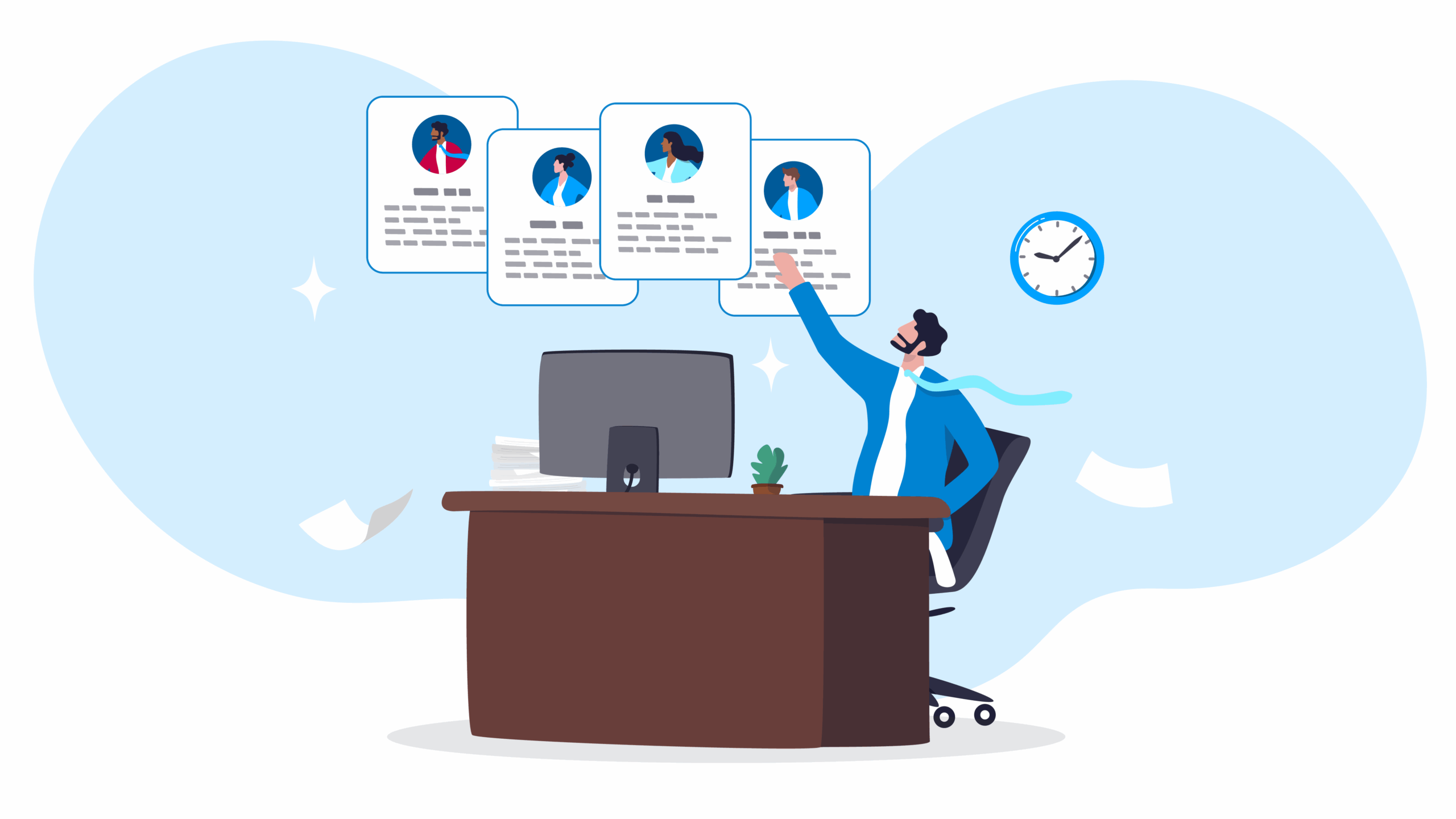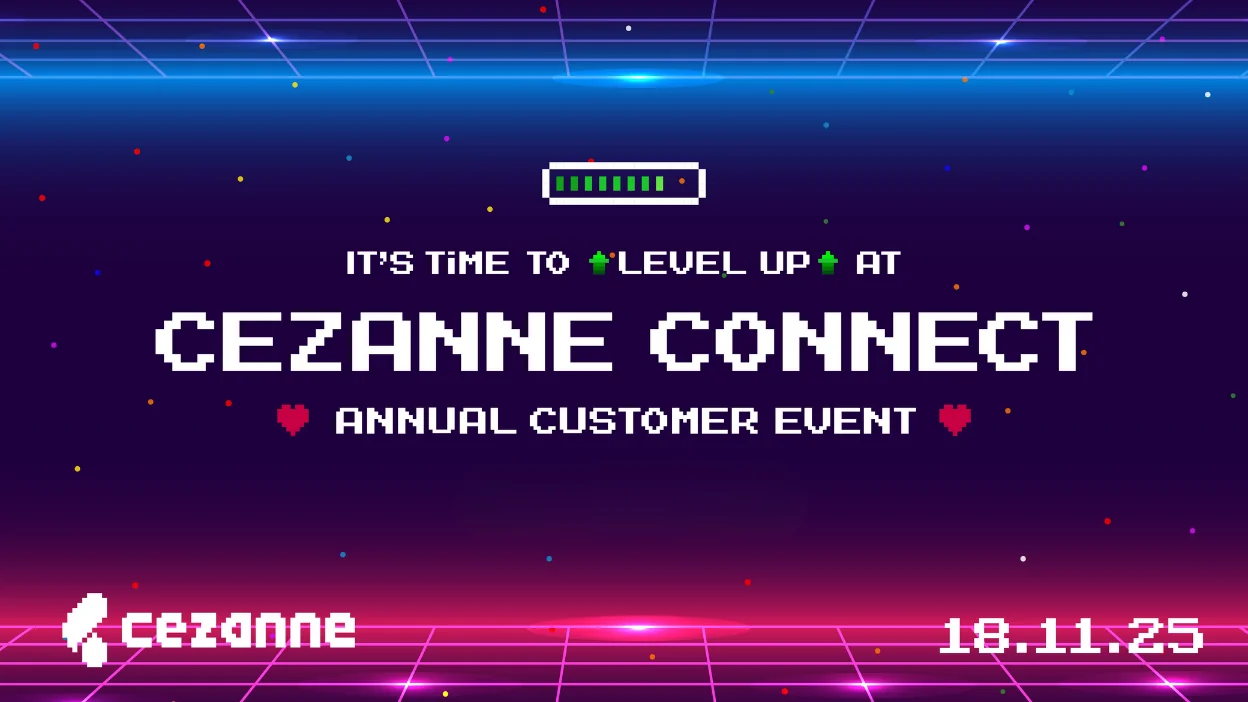How AI is revolutionising interview processes in summary:
Artificial intelligence is significantly transforming recruitment by automating scheduling, improving candidate screening, reducing bias, and enhancing interview interactions. These advancements lead to more efficient processes, better hires, and improved candidate experiences.
- AI streamlines interview scheduling: AI-powered tools automatically suggest optimal times for interviews, eliminating back-and-forth communications and reducing administrative workload.
- Enhanced candidate screening: AI systems efficiently scan CVs, identify key skills, and match candidates to job requirements with greater accuracy using natural language processing.
- Bias reduction through data-driven decisions: AI can mitigate unconscious bias by making objective hiring decisions based on data, fostering more diverse and inclusive teams.
- Interactive AI-driven interviews: Chatbots and video platforms use AI to conduct dynamic interviews, adapting questions in real time and analysing speech and non-verbal cues for deeper candidate insights.
- Personalised AI interview questions: AI tailors questions during interviews based on candidates’ CVs and responses, making interviews more relevant and efficient.
- ChatGPT’s role in interviews: AI tools like ChatGPT facilitate conversational interviews by generating role-specific questions, improving interaction and insight quality.
- AI integration in recruitment workflows: AI supports pre-screening, provides real-time interview insights, and offers post-interview analysis to refine hiring decisions and processes.
- Ethical and legal considerations: Responsible AI use requires addressing privacy, algorithmic bias, legal compliance, regular auditing, and transparency to ensure fairness and build candidate trust.
Have you heard? Traditional recruitment processes are undergoing a massive facelift, and it’s all thanks to artificial intelligence (AI).
From scheduling to screening and even conducting interviews, AI is changing the game for hiring teams and candidates alike. For example, research has shown AI scheduling assistants can save professionals an average of 4.8 hours per week on meeting scheduling, leading to a 30–40% reduction in administrative overheads.
And the good news doesn’t stop there. The adoption of AI doesn’t just mean a reduction of ghastly administration – it can also mean better, data-driven hires, enhanced candidate experiences, and a more efficient recruitment process for everyone involved. All good stuff, I’m sure you’ll agree.
But, how exactly is AI transforming one of the most vital parts of recruitment: the interview process? Let’s look at the tech that’s shaking things up.
Automating scheduling: say goodbye to back-and-forth
For starters, AI is taking the headache out of scheduling interviews: with AI-powered tools making scheduling a seamless experience. These tools automatically suggest optimal times for both interviewers and candidates, cutting down on the endless back-and-forth and allowing recruiters to focus on finding the right fit. Plus, it saves time and reduces the chance of human error. So, no more hunting through diaries or sending endless meeting re-scheduling requests!
Supercharging candidate screening: precision at scale
If you’re a busy hiring manager, sifting through applicant CVs can feel like a never-ending task – especially when your business is going through a growth spurt and hiring for multiple positions. But with AI, the process is faster and more accurate. In fact, according to Harvard Business Review, 67% of companies using AI in recruitment report improved candidate matching and screening efficiency.
AI-driven recruitment systems can scan CVs, identify key skills, and flag candidates who match job requirements much better (and faster) than any human could. Thanks to natural language processing (NLP), AI tools are reading between the lines and spotting those golden candidates who might otherwise be missed.
Reducing bias: the data-driven decision-maker
Bias is a big problem in hiring, but AI – when used correctly of course – can help mitigate it. AI tools use data to make hiring decisions, meaning they’re more objective and consistent than human judgment. By addressing and reducing unconscious bias, AI can help companies build more diverse, inclusive teams that can be more successful than more homogeneous competitors.
Don’t believe us? Well, stats from a report by McKinsey discovered that organisations with more ethnical diversity show an average 27% financial advantage over others. So, if you’re in an ultra-competitive industry where innovation is key, a diverse workforce may just be your secret weapon.
So, we now know how AI is influencing interviews and recruitment: but, what is AI actually doing, and how does it work? Let’s look at some examples…
Chatbots: the next generation
From AI-driven chatbots to video-interviewing platforms, artificial intelligence is transforming interviews from a one-way grilling into something far more dynamic and interactive. AI-powered chatbots can greet candidates, guide them through pre-screening questions, and even adapt follow-up queries in real time based on their answers – all thanks to natural language processing (NLP).
That said, chatbots can be something of a Marmite feature: some candidates love the speed, convenience, and 24/7 accessibility, while others find them impersonal or frustrating if they’re itching to talk to a real human. The key for employers is to ensure they’re used as a helpful filter and warm-up act, not a cold, inhuman gatekeeper.
On the video side, some AI tools don’t just record a conversation; they can analyse it, too. That means assessing speech patterns, tone of voice, and even non-verbal cues (hello, body language!) to offer hiring managers deeper insights into a candidate’s communication style, confidence, and cultural fit.
Combined, these technologies give recruiters richer, more objective data points to work with – reducing bias, speeding up decision-making, and enhancing the candidate experience from the get-go.
AI interview questions
One of the coolest things about AI-enhanced interviews is how they can generate specific, role-relevant questions. Based on the candidate’s CV and previous answers, AI-powered recruitment systems can adapt questions in real-time, making the interview process not only more personalised but also more efficient.
For example, if a candidate’s CV shows a strong background in project management, the system might dig deeper into their leadership style or experience with specific methodologies. If their responses reveal a knowledge gap, it can pivot to explore that further – all without the awkward “let me just think of another question” pause from the interviewer.
The result? A process that’s not only more personalised and engaging for the candidate, but also more efficient for the employer. Interviewers gain richer, more relevant insights, and candidates leave feeling that interviewers genuinely understood their skills and experience – not just ticked them off against a generic checklist.

ChatGPT in interviews
ChatGPT isn’t just for writing blog posts (although I hasten to add not this blog post!). AI tools – like ChatGPT – can conduct interviews that feel more like a conversation and less like an interrogation. By asking role-specific questions based on a candidate’s background, ChatGPT makes the interview process smoother, more interactive, and even more insightful.
Need some question ideas to get you started? Then download our Ultimate Interview Questions Guide here.
How you can Integrate AI into your interview workflows
AI can start working its magic before the interview even begins. AI can pre-screen CVs to ensure that only qualified candidates make it to the interview stage. This ensures your time is spent on the best candidates, and not on those who are clearly not a fit.
-
Live interviews with real-time insights
AI tools can provide live support during interviews, offering real-time data, behavioural analysis, and even predictive analytics. These insights can help interviewers make smarter, more informed decisions on the spot.
-
Post-interview analysis for better feedback
Once the interview is over, AI doesn’t just sit back and relax. It continues to work by analysing candidate responses and offering actionable feedback. This feedback loop helps refine interview techniques and improve the entire recruitment process over time.
The legal and ethical concerns for using AI in hiring
Sure, AI is powerful, and it can certainly make recruitment activities more efficient and streamlined: but let’s not forget about the responsibility that comes with it.
As with any new technology, AI in hiring must be implemented ethically. Privacy concerns, algorithmic bias, and ensuring legal compliance are just a few of the factors that need to be kept in check. So, it’s vital that AI tools are used responsibly to protect candidate data and ensure fairness.
AI can only ever be as fair as the data it’s fed. If the data contains hidden biases – whether from historic hiring patterns, skewed demographics, or incomplete datasets – those biases creep into its decisions, often without anyone noticing at first. When left unchecked, they can unfairly filter out great candidates or reinforce the very inequalities AI was meant to help solve.
That’s why it’s critical to regularly audit AI recruitment systems. This isn’t just a one-off box-ticking exercise when the tool is first set up; it needs to be an ongoing process. Regular auditing must check the system’s outputs, assess whether it disproportionately screens certain groups in or out, and tweak the data, algorithms, or decision-making criteria as needed.
By building in regular reviews – ideally with diverse human oversight – employers can catch problems early, maintain transparency, and make sure the AI is genuinely supporting fair, unbiased decision-making rather than quietly undermining it. In other words: treat your AI like a new employee. Train it well, check in often, and make sure it’s actually doing the job you hired it for!
Lastly, transparency is key to maintaining a good relationship with candidates. Letting them know how AI is being used during the interview process (and why it’s beneficial) helps build trust and enhances their experience. The more they understand the tech, the more they’ll appreciate its fairness and accuracy, and the less likely they are to view it as some mysterious black box making life-changing decisions about their future.

Kim Holdroyd
HR & Wellbeing Manager
Kim Holdroyd has an MSc in HRM and is passionate about all things HR and people operations, specialising in the employee life cycle, company culture, and employee empowerment. Her career background has been spent with various industries, including technology start-ups, gaming software, and recruitment.










